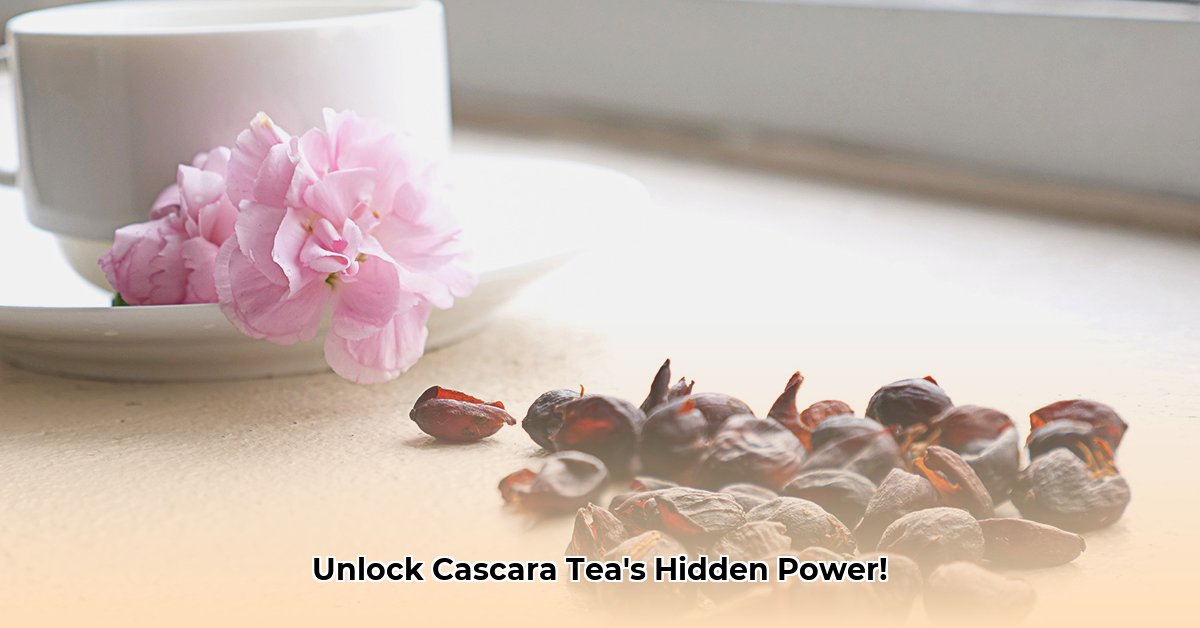
Understanding Cascara Tea's Potential Benefits
Cascara tea, derived from the dried husks of coffee cherries, is gaining popularity for its potential health benefits. While traditionally used for digestive support, recent research suggests broader applications. This article explores the potential advantages and cautions surrounding cascara tea consumption, providing you with the information needed to make informed decisions. Remember, this information is for educational purposes and does not constitute medical advice. Always consult your physician before incorporating new supplements into your diet, especially if you have pre-existing health conditions or are taking medications.
Antioxidant Powerhouse: Your Body's Natural Defense
Cascara tea is rich in antioxidants, compounds that neutralize harmful free radicals in the body. Free radicals damage cells and contribute to various health problems. Studies indicate that cascara's antioxidant levels are comparable to, or even exceed, those in cranberries, a well-known antioxidant source. This potent antioxidant profile may contribute to improved overall health, though more research is needed to fully understand the extent of these effects. Could this potent antioxidant boost be the key to enhanced cellular protection?
Gentle Digestive Support: Promoting Regularity
Many individuals find cascara tea beneficial for digestive regularity. Its fiber content aids in promoting healthy bowel movements, offering gentle relief from occasional constipation. However, it's crucial to remember that cascara tea acts as a mild laxative; overuse can lead to dependency and unpleasant side effects such as diarrhea and cramping. How can you harness the benefits of cascara for digestive health while avoiding potential drawbacks?
Cardiovascular Health: Early Indications, Further Research Needed
Emerging research hints at potential benefits for cardiovascular health. Cascara tea’s antioxidant and anti-inflammatory properties may contribute to improved blood flow and reduced inflammation, both crucial factors in maintaining a healthy heart. However, more robust, large-scale studies are needed before definitive conclusions can be made. Therefore, while promising, claims about cascara tea's impact on cardiovascular health remain tentative.
Potential Side Effects and Precautions
While cascara tea offers potential advantages, it's vital to be aware of potential side effects, especially with excessive consumption. These may include digestive upset, diarrhea, and abdominal cramps. The caffeine content, though typically lower than coffee, should also be considered for those sensitive to caffeine.
Who Should Exercise Caution?
Certain individuals should approach cascara tea with caution and consult their physician before use:
- Pregnant or breastfeeding women: The impact of cascara during pregnancy and breastfeeding isn't fully understood.
- Individuals with existing medical conditions: Those with intestinal disorders, heart conditions, or other health issues where laxative effects might exacerbate symptoms should exercise caution.
- People taking medications: Interactions between cascara tea and certain medications are possible. Consult your doctor to avoid potential conflicts.
How to Safely Incorporate Cascara Tea into Your Daily Routine
To maximize benefits and minimize risks, follow these guidelines:
- Start slowly: Begin with a small amount (one cup) to assess your body's tolerance.
- Listen to your body: Discomfort signals (cramps, diarrhea) indicate a need to reduce intake.
- Hydrate adequately: Drink plenty of water, particularly when using cascara for its laxative effects.
- Practice moderation: Avoid excessive consumption. Two cups daily is a reasonable maximum.
- Consult your doctor: Discuss cascara tea use with your physician, especially if you have any underlying health concerns or are taking medications.
Cascara Tea: A Balanced Perspective
Cascara tea offers potential benefits, particularly for digestive health and antioxidant support. However, it's not a miracle cure. A balanced lifestyle—including a nutritious diet, regular exercise, and stress management—remains essential for long-term well-being. Cascara tea can complement these practices, but it shouldn't replace them. Always remember to consult your doctor before starting any new supplement regimen.